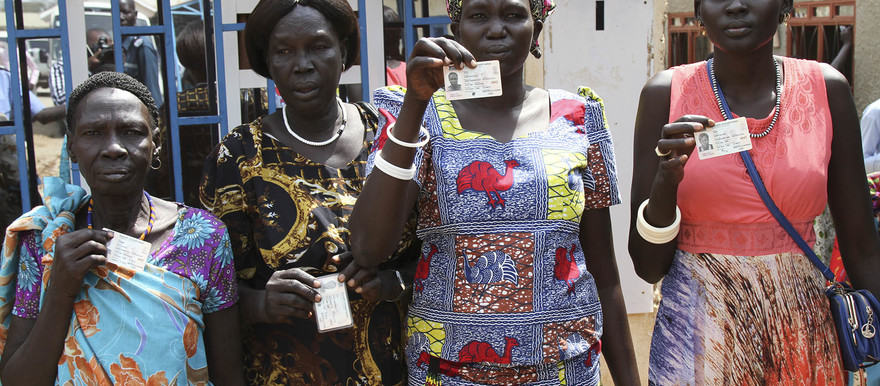112 South Sudanese people have received birth certificates and ID cards since December 2015 as part of a program to ensure that citizens have necessary documentation to prove their citizenship, UN refugee agency UNHCR said.
The program which is run by the United Nations refugee agency (UNHCR) and South Sudan’s Directorate of Nationality, Passport and Immigration (DNPI) is helping to combat “statelessness” which is where a person is unable to prove their nationality which makes it difficult to apply for jobs or passports.
National identification is a requirement for South Sudanese nationals to access public services and to find jobs in both the public and private sector – and for students to gain access to government scholarships.
Over 9000 people across South Sudan have received ID cards since the program launched in June 2013, including 1500 people in Juba, Aweil, Wau, and Rumbek since January 2015, UNHCR said.
One of those people card is 24-four-year-old Chol Jacob. Although he had earned a diploma, Chol said he avoided venturing into Juba city centre and applying for a job for the last two years because he had no documents.
“I always feared I could be arrested or detained because I had no documents to prove my identity and nationality,” said Chol, who has lived in an IDP camp in Juba since the war began. “I could not afford paying for all the documents necessary to get a national identity card.”
Chol is one among half a million men, women and children who are at risk of statelessness in South Sudan, according to a UNHCR survey. Born in Sudan before South Sudan’s independence, many had no means to get identity and nationality documents or did not get documents.
As a result, today, many have trouble to prove their link to South Sudan since the secession from Sudan in 2011. The citizenship national ID cards allow the holders to claim and exercise their rights as foreseen in the national constitution, UNHCR said.
“I am excited. At the moment, I can travel wherever I want and I can go apply for jobs,” said Chol.
DNPI’s Project Coordinator Kuol Akon said the latest campaign to provide people with IDs is a “milestone” in addressing South Sudan’s statelessness.
“You can seek services and employments anywhere with these cards without discrimination. If you have your national ID card and wish to travel abroad, you can apply for a passport,” Akon said.
“We still have a long way to go to achieve our objectives, but we will work together to make it happen,” Akon added.
UNHCR has so far invested 200,000 US dollars to support DNPI in identifying and issuing identity documents to persons at risk of statelessness, in addition to providing DNPI staff with technical expertise.
“It is a key intervention to help vulnerable people like Jacob enjoy the same rights as other fellow citizens,” said Richard Lou, UNHCR Protection Officer who leads the project in Juba.
Photos: UNHCR




